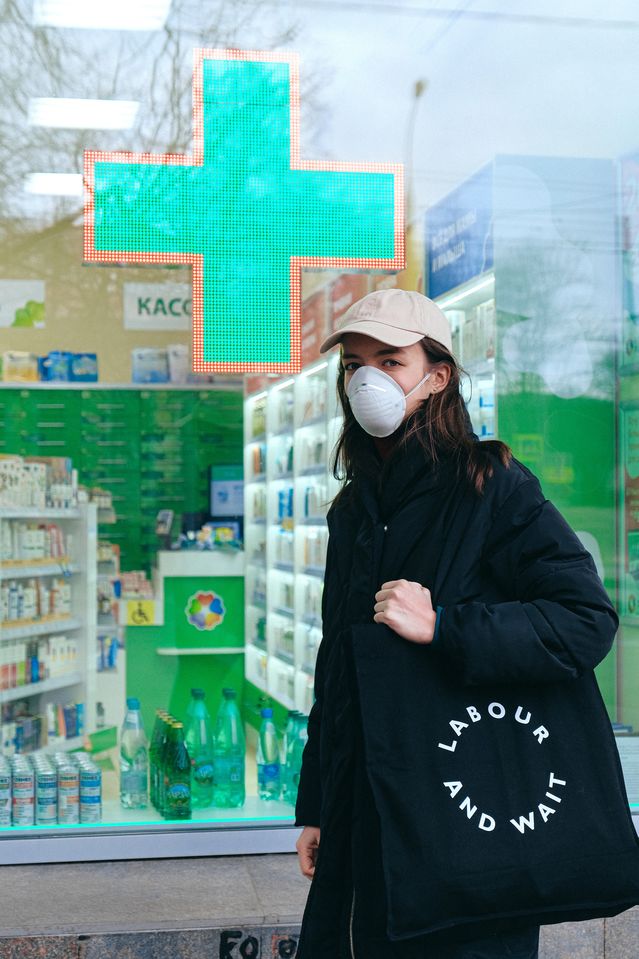Coronavirus Disease 2019
The Tragedy of the Commons Strikes Back
To defeat COVID-19, we must recognize our interconnectedness.
Posted April 9, 2020 Reviewed by Matt Huston

Recently a friend alerted me that a local grocery store was selling hand sanitizer. This grabbed my attention immediately. “You’re sure?” I asked. “Yes. I was just there 5 minutes ago,” he replied. I hadn’t planned on going to the grocery store more than once a week, but this was an opportunity I couldn’t pass up. “OK, I’ll go there now,” I said. “Buy only one,” he told me emphatically. “Just one?”
He continued: “Our neighbors need them too. For every bottle you don’t buy, someone else will buy it, and then they won’t infect you.”
Right on.
If we want to defeat the COVID-19 pandemic and minimize its economic and social consequences, then we need to understand and deal with the tragedy of the commons. This idea was originally coined by Garrett Hardin. In human societies where individuals are encouraged to maximize their personal resources, rather than thinking about the overall ecological health of their society, there will be catastrophic ramifications, such as food/water shortages or climate change.
My friend’s sentiment about the hand sanitizer reflects a solution. Individuals must recognize that we personally stand to benefit when all others in our community have what they need. Put another way, when individuals act to maximize their own share, this is ultimately self-defeating. We all end up suffering when others don’t have food, shelter, or healthcare. (I’ve written about this elsewhere if you want to read more about my class’s extra credit exercise.)
We can see clearly how the tragedy of the commons is happening during this pandemic. Many young adults and conservatives are not alarmed and ignore public health recommendations from the CDC and WHO about social distancing. These folks are still going out to public places (like beaches) in large crowds, engaging in close contact with others, unaware that they might become infected or spread germs. I caution against judging folks like these as immoral actors, considering that the President’s cavalier attitudes may be directly contributing to this phenomenon. Still, this type of behavior will ultimately wreak havoc on our healthcare system, even if most Americans will live on. The country suffers when too many people think only about themselves and not about the greater good.
We also see this happening with resource consumption. People are hoarding household items like hand sanitizers or toilet paper, either because they are afraid these products will run out, or because they want to re-sell and make a profit. But when too many people focus on maximizing their own outcomes, then essential resources become depleted and society suffers. Some experts, including Martin Chorzempa, who works at the Peterson Institute for International Economics, have made the connection directly between medical supply hoarding and the tragedy of the commons.
How can we curtail this behavior? State governments and businesses are already restricting how much people can buy, but it may be too late for some people if the shelves are already empty. There are punitive measures against price gouging in most places, but that didn’t stop Matt Colvin of Tennessee from stockpiling over 17,000 bottles of hand sanitizer. (Colvin has since expressed remorse for his actions and donated the supplies he had bought.) Baruch Feldheim of Brooklyn was raided by the FBI, which confiscated thousands of medical supplies (including N95 masks) that he was re-selling for an exorbitant price. It is clear that these people will face some degree of punishment in accordance with the law. But with a short supply of medical equipment, too many lives have already been lost.
I suggest that in addition to retroactive legal measures, we use some proactive psychology. Individuals must all realize that our own fates are interconnected with the fate of our fellow citizens and our nation. Feelings of loyalty and devotion could compel people to act more mindfully during the pandemic, as encouraged by this vintage WW1 era poster from the Library of Congress with a caption reading, “Patriotic Canadians will not hoard food.” I’d like to think this can hold true for other nationalities as well. This is our wartime duty.
Some preliminary research shows* that framing messages in terms of devotion can be effective in motivating people to wash hands or socially isolate. For instance, appealing to a sense of “responsibility to fellow citizens” may move people more than “thinking about consequences” or “being a good person.” As I wrote in a previous article, “Making a conscious effort to limit one’s consumption of resources is a duty to the flags, symbols and pledges of allegiance that unite us.”
My colleague Michele Gelfand has written about how we can learn from “tight” societies such as Singapore, Hong Kong, and South Korea, which have dealt with COVID-19 effectively. All human cultures fall somewhere on the tightness-looseness spectrum. In tighter cultures, people are better at social coordination to achieve common goals, which include enacting necessary restrictions to eradicate disease, but there is less freedom to think outside the box. In looser cultures, people feel permitted to do their own thing, which is great for creativity and innovation but bad for getting large populations of people to behave responsibly during a pandemic. This is part of the reason why Italy and the USA (two looser cultures) are facing such a huge health crisis now.
Gelfand suggests that we all follow the rules (e.g., staying home), as tight cultures are doing. But we don’t want to throw away our looseness completely. An ideal way forward may be to balance tight regulations with loose creativity. Individuals are now making their own fabric face masks and distributing them among their friends as a way to stop germ spread. Restaurants are selling groceries. Alcohol companies are making hand sanitizer. Car and office supply companies are producing face masks and respirators. And hotels are accepting vulnerable homeless people off the street.
These are all examples of loose American ingenuity. All over the country, people are finding creative ways to help and empower others, not because they will personally benefit, but because they are driven by a feeling of collective responsibility. This is a key mindset to have if we’re going to overcome the tragedy of the commons, “flatten the curve,” and persevere through this once-in-a-generation challenge.
*The authors of this work emphasize that these preliminary findings have not yet gone through peer review (3/31/20), and therefore should be interpreted with caution and should not be widely implemented before independent replications are conducted.
References
Van Bavel, J. J., Baicker, K., Boggio, P. S., Capraro, V., Cichocka, A., Cikara, M., Crockett, M. J., Crum, A. J., Douglas, K. M., Druckman, J. N. Drury, J., Dube, O., Ellemers, N., Finkel, E. J., Fowler, J. H., Gelfand, M., Han, S., Haslam, S. A., Jetten, J., Kitayama, S., Mobbs, D., Napper, L. E., Packer, D. J., Pennycook, G., Peters, E., Petty, R. E., Rand, D. G., Reicher, S. D., Schnall, S., Shariff, A., Skitka, L. J., Smith, S. S., Sunstein, C. R., Tabri, N., Tucker, J. A., van der Linden, S., Van Lange, P. A. M., Weeden, K. A., Wohl, M. J. A., Zaki, J., Zion, S. & Willer, R. (in press). Using social and behavioural science to support COVID-19 pandemic response. Nature Human Behavior.
Everett, J. A. C., Colombatto, C., Chituc, V., Brady, W. J., & Crockett, M. (2020, March 20). The effectiveness of moral messages on public health behavioral intentions during the COVID-19 pandemic. https://doi.org/10.31234/osf.io/9yqs8




